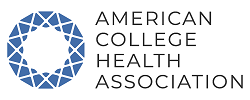Coronavirus FAQs
Table of Contents
Frequently asked questions regarding COVID-19 and Montana State University Billings are arranged in categories below. Click on a question to go directly to that answer.
Coronavirus Basics
Health, wellness and prevention
- What steps can I take to prepare if there is widespread transmission of COVID-19?
- How should I clean and disinfect communal spaces?
- What is the University Mask Policy?
- I’m suffering from anxiety about COVID-19. How can I get help?
- I’m concerned about friends and family in an area with a COVID-19 outbreak. How can I manage my concern for them?
Reporting of positive COVID-19 cases
Coronavirus Basics
1. What is coronavirus?
Coronaviruses are a large family of 50+ distinct viruses which are found worldwide and infect both mammals and birds. Four coronaviruses have been circulating among humans for years and are believed to cause 20-40% of common cold infections per year. Two other coronaviruses have caused much more serious human illness since 2002: SARS-CoV and MERS-CoV.
In December 2019, a cluster of human respiratory illnesses in Wuhan, Hubei Province, China, prompted a public health investigation which identified a new coronavirus, now called COVID-19.
Symptoms include a short respiratory illness with a cough and low-grade fever. In a minority of cases, the virus can lead to critical illness or death. Severe cases have primarily been noted in patients over 65 years of age who also have significant underlying chronic illnesses such as diabetes, hypertension, cardiac disease or liver disease.
COVID-19 Frequently Asked Questions
2. How does it spread?
The virus is thought to spread mainly from person-to-person among people who are in close contact with one another, within about 6 feet, through respiratory droplets produced when an infected person coughs or sneezes.
These droplets can land in the mouths or noses of people who are nearby or possibly be inhaled into the lungs.
It may be possible that a person can get COVID-19 by touching a surface or object that has the virus on it and then touching their own mouth, nose, or possibly their eyes, but this is not thought to be the main way the virus spreads.
3. How is it treated?
There is no vaccine nor any known antiviral treatment for COVID-19 so treatment is primarily supportive care. Mild cases may be treated at home, but severe illness requires hospitalization.
Health, wellness and prevention
1. What steps can I take to prepare if there is widespread transmission of COVID-19?
The power to protect our campus community from coronavirus and flu lies with each and every one of us. Please practice the following hand-washing and respiratory hygiene habits to protect yourself and those around you:
- Cover your mouth and nose with a tissue or your sleeve (not your hands) when coughing or sneezing.
- Clean your hands by washing them with soap and water for at least 20 seconds or using an alcohol-based hand sanitizer that contains 60%–95% alcohol immediately after coughing, sneezing, or blowing your nose. Soap and water should be used if hands are visibly dirty.
- Stay home if you’re sick. We will work with you to make arrangements for missed exams and work.
Please see the CDC’s guide for preventing the spread of COVID-19 in communities.
2. How should I clean and disinfect communal spaces?
The U.S. Centers for Disease Control and Prevention (CDC) recommends cleaning and disinfecting frequently touched surfaces (e.g., doorknobs, tables, keyboards light switches). Use a disinfectant registered with the U.S. Environmental Protection Agency (EPA) or a 10% bleach/water solution to clean surfaces.
Please avoid putting disinfectant gels or liquids on electronics and other equipment, including elevator buttons, unless the products are indicated as safe to use on those devices.
3. What is the University face covering requirement?
Please see our Back to Business Fall 2020 Action Plan for the University's mask policy.
4. I’m suffering from anxiety about COVID-19. How can I get help?
Many are experiencing anxiety as news and warnings about COVID-19 intensify. If you would like to talk with someone, support is available to students through your campus’ mental health services.
Here are some tips to manage your fear and anxiety around COVID-19
5. I’m concerned about friends and family in an area with a COVID-19 outbreak. How can I manage my concern for them?
The COVID-19 outbreak has heightened stress for those who have family and friends in affected areas. If you would like to talk with someone, support is available to students through your campus’ mental health services.
Reporting of positive COVID-19 cases
To protect patient privacy, the Montana University System cannot legally release the immediate location of individuals being screened for or confirmed to have COVID-19.
Confirmed and suspected cases will be reported by the Montana Department of Health & Human Services. Montana’s Department of Health and Human Services tracks possible, negative, and confirmed cases on their website.
In the event that a member of one of our Montana University System campus communities were confirmed or suspected to have COVID-19, the campus would follow the lead of the local county health department to initiate appropriate quarantine and public health management protocols.

